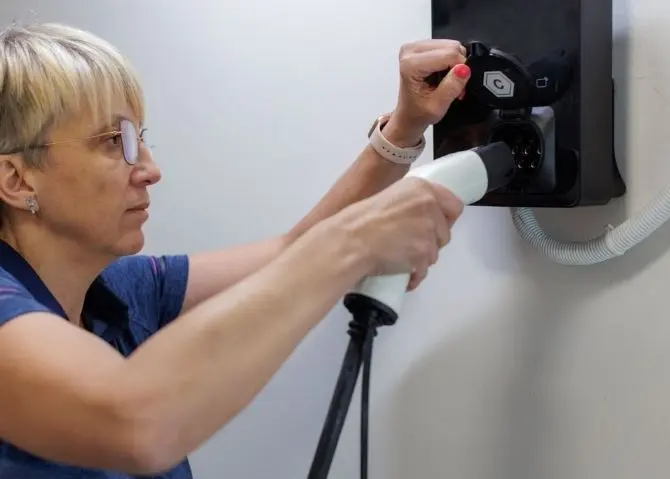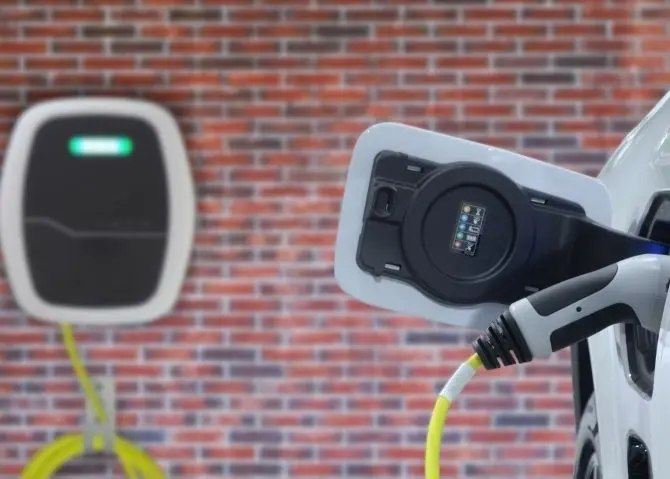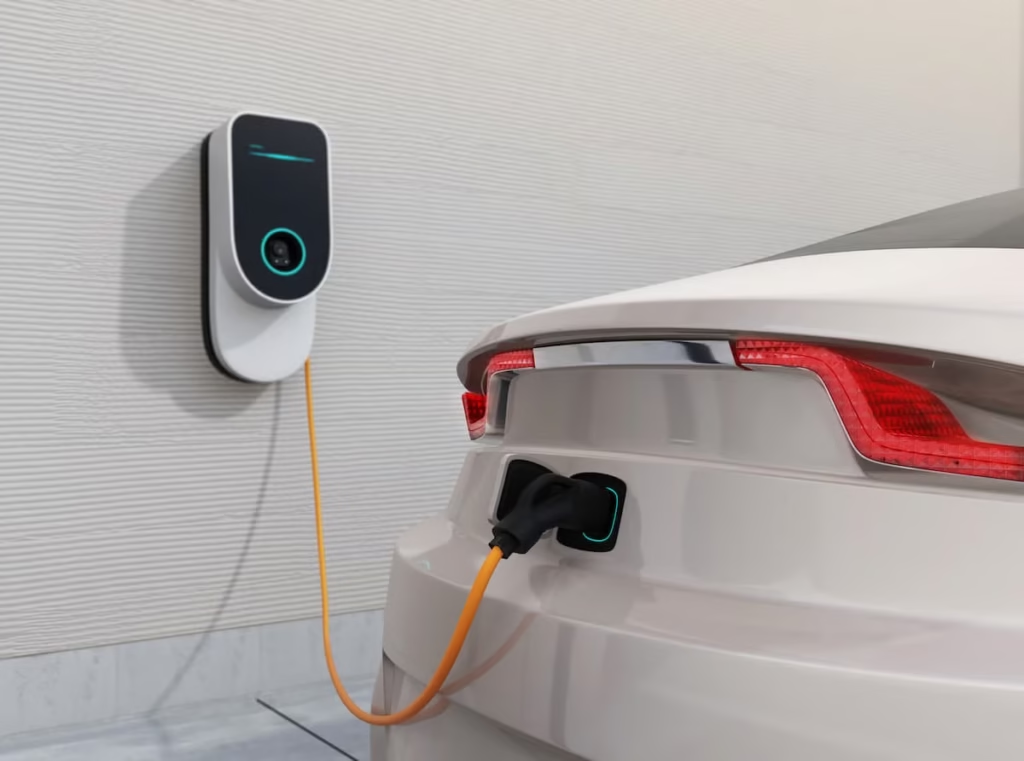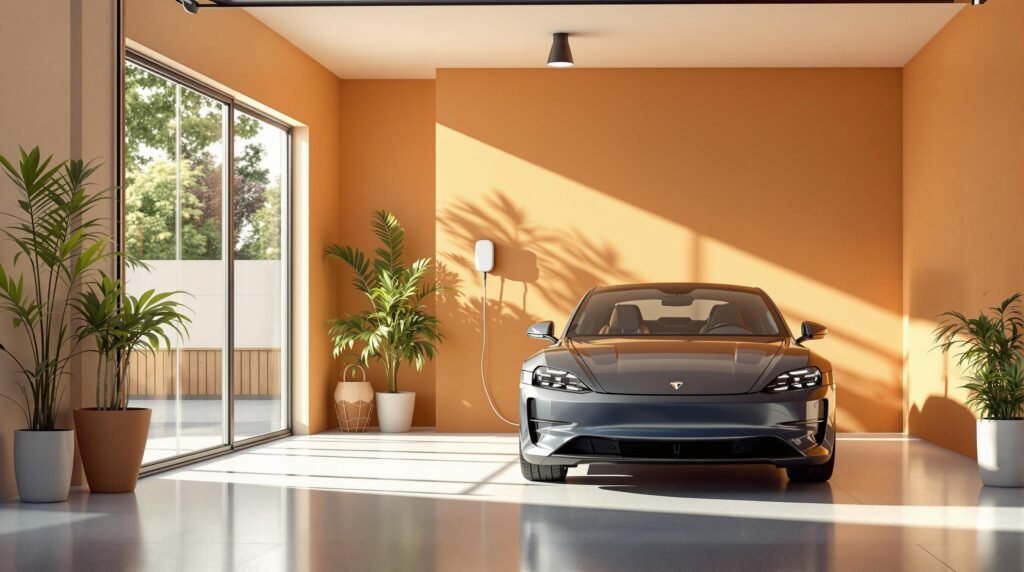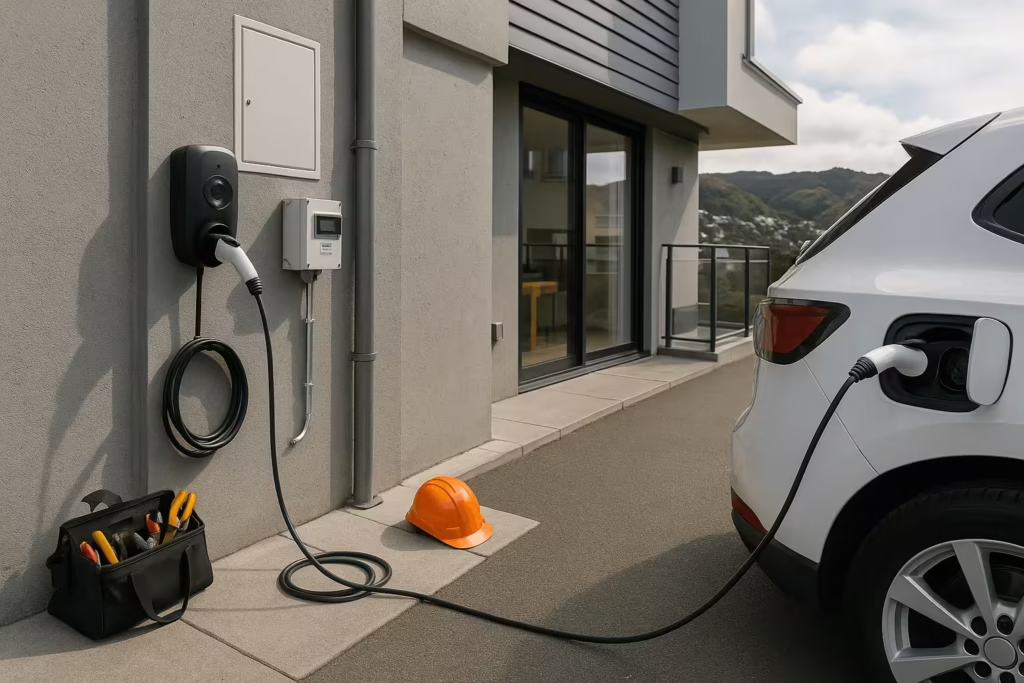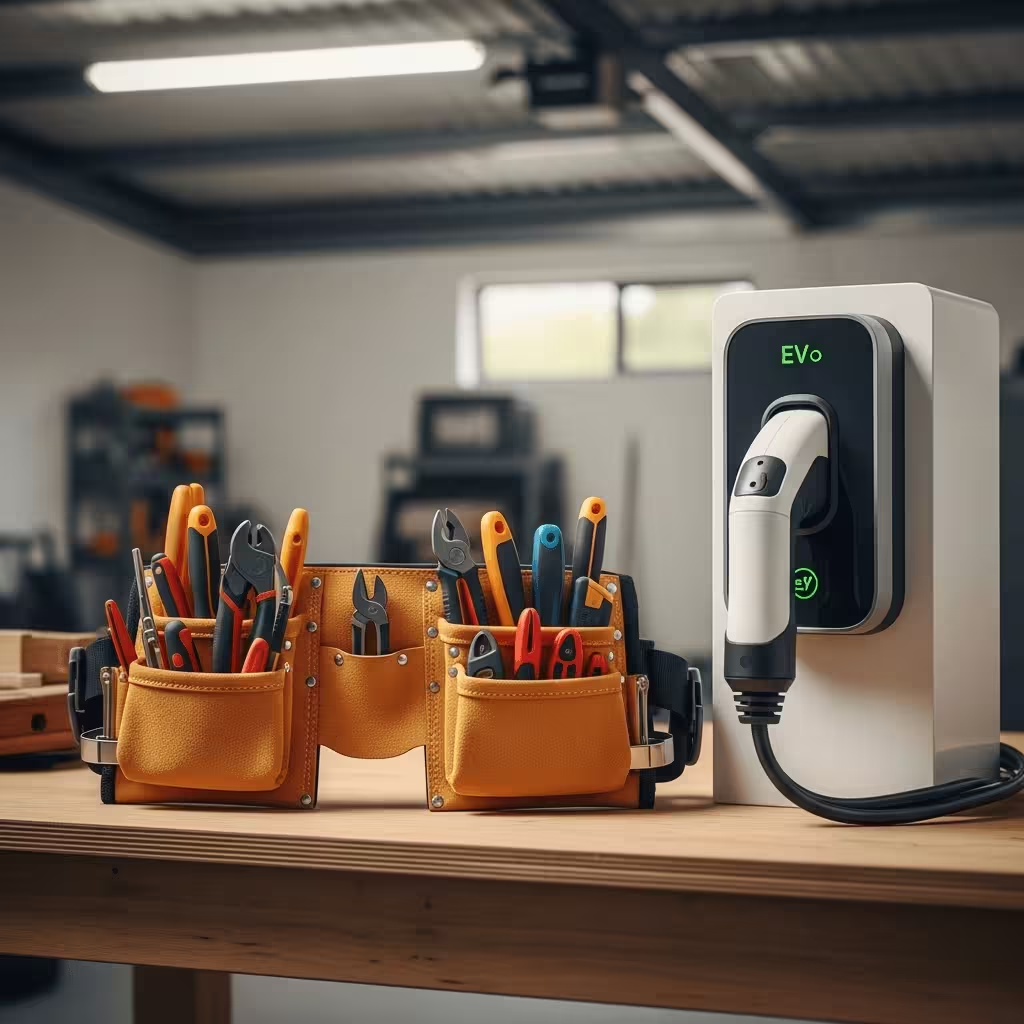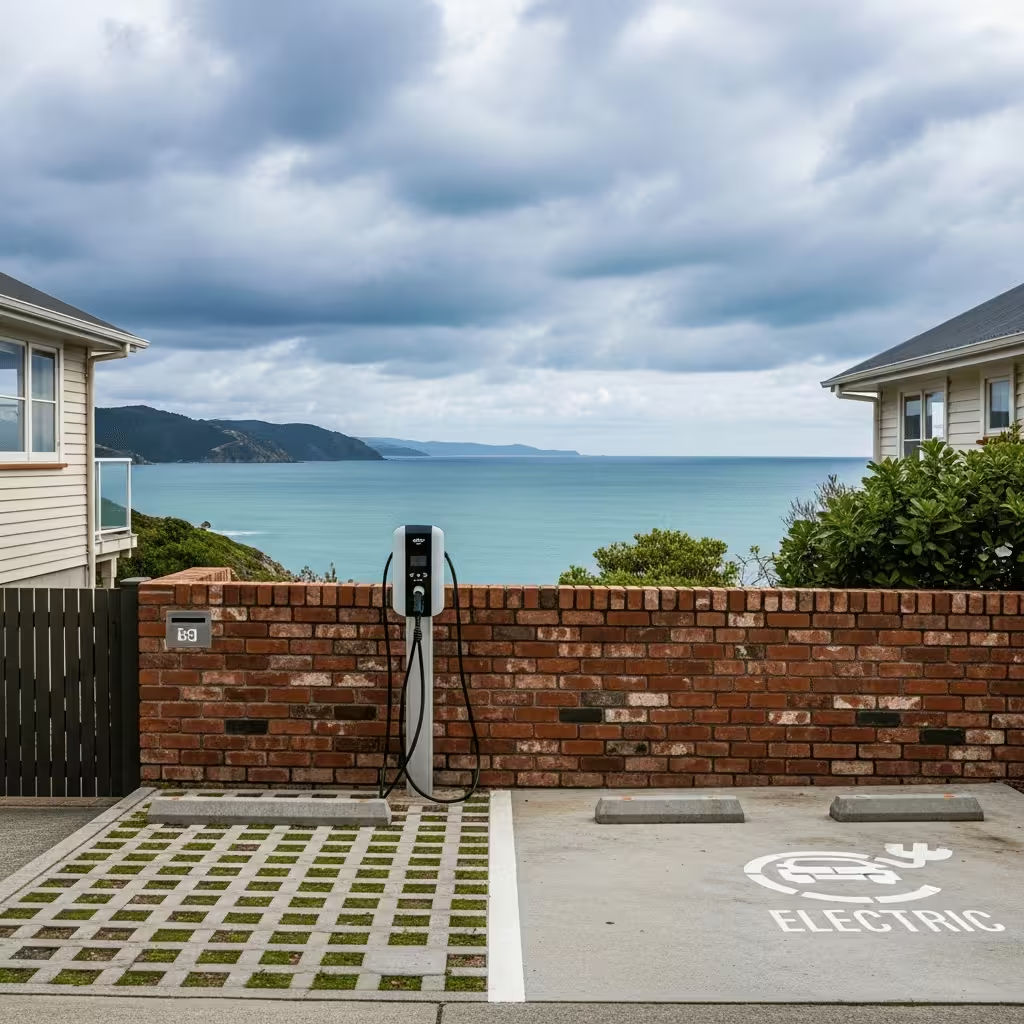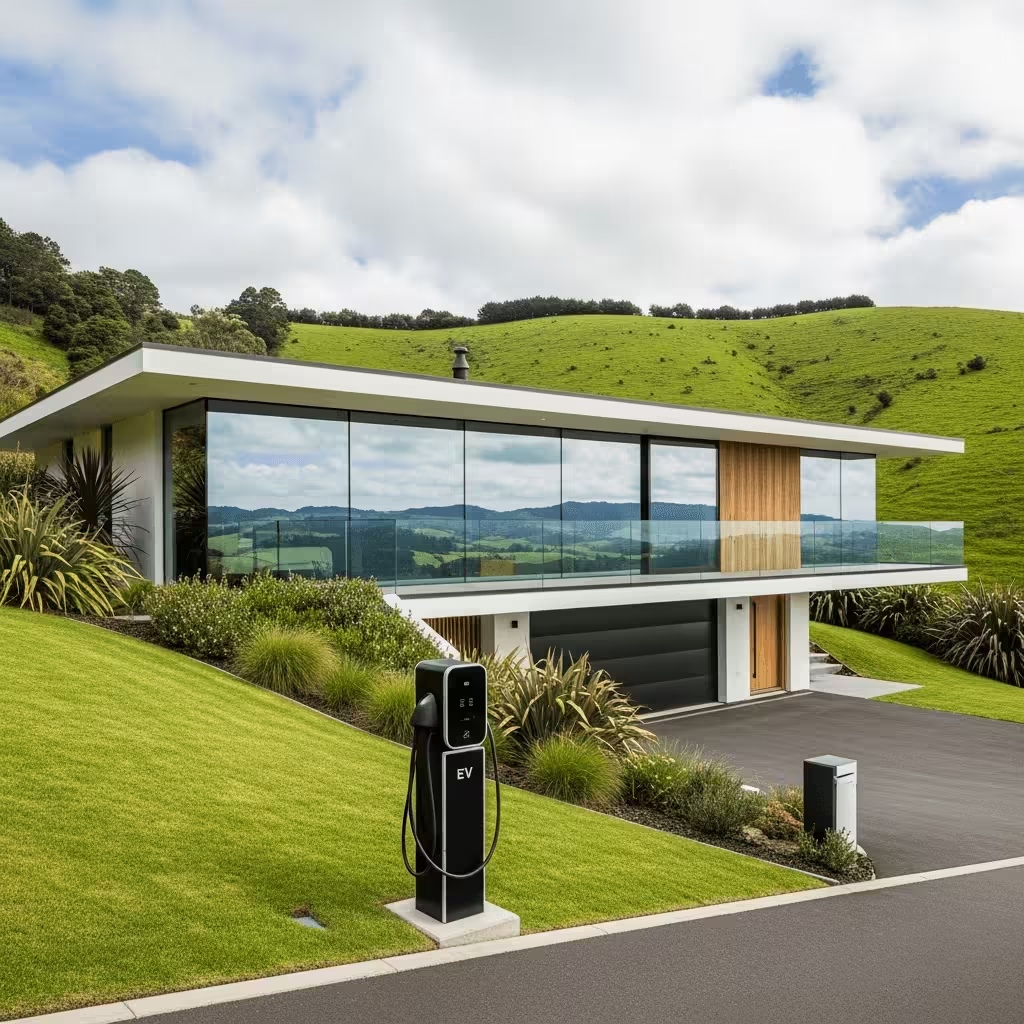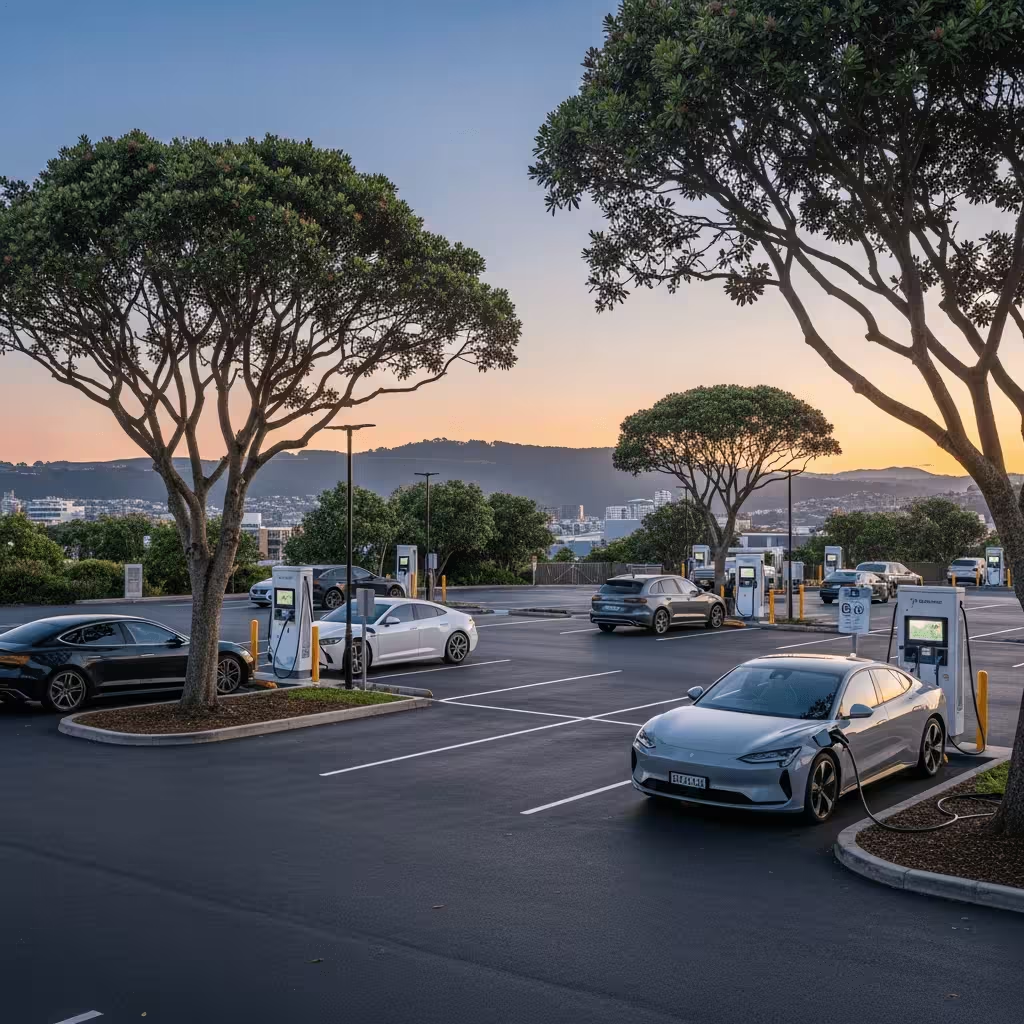With the growing popularity of electric vehicles (EVs) in New Zealand, installing an EV charger at home has become a practical step for many homeowners. Having a dedicated charging station not only saves time but also ensures that your vehicle is always ready for the road. If you’re considering installing an EV charger at your Wellington home, this guide will walk you through the key considerations, safety standards, and the importance of hiring a qualified electrician for the job.
Understanding EV Chargers and Their Types
As electric vehicles (EVs) continue to grow in popularity in New Zealand, understanding the different types of EV chargers is an essential first step before considering an installation at home. EV chargers are designed to replenish your vehicle’s battery, but their performance, cost, and installation requirements vary significantly. In this section, we’ll explore the three main types of EV chargers—Level 1, Level 2, and DC fast chargers—helping you make an informed choice for your needs.
What Are EV Chargers?
EV chargers supply electrical energy to your vehicle’s battery, enabling it to store power and keep your car running. They vary in terms of power output, charging speed, and compatibility with different vehicles. Depending on the type of charger, installation requirements range from plugging into a standard outlet to involving significant electrical upgrades. Knowing the distinctions between these chargers is critical to ensuring your EV charging setup aligns with your driving habits and home infrastructure.
1. Level 1 Chargers: A Convenient Starting Point
Level 1 chargers are the most basic type of EV charger and are often included with the purchase of your EV. These chargers plug into a standard 240V household outlet and provide around 8-10 kilometres of driving range per hour of charging. While they are convenient and require no special installation, Level 1 chargers are best suited for drivers with minimal daily commutes or access to alternative charging options.
For example, a typical overnight charge of 8-12 hours with a Level 1 charger will add approximately 100 kilometres of range, which might not be sufficient for users with longer daily drives. Additionally, relying solely on a Level 1 charger can strain standard electrical outlets over time, making them less ideal as a long-term solution.
2. Level 2 Chargers: The Residential Favourite
Level 2 chargers are by far the most popular option for home EV charging. Operating on a 240V dedicated circuit, they provide a significant upgrade in charging speed compared to Level 1 chargers, delivering up to 40 kilometres of range per hour. This allows most vehicles to fully charge overnight or even within a few hours, depending on the battery size and the charger’s capacity.
Installing a Level 2 charger requires professional assistance, as it involves upgrades to your home’s electrical system to support the additional load. A licensed electrician can assess whether your electrical panel has the capacity to handle a dedicated circuit for the charger. In New Zealand, complying with electrical safety standards is essential to ensure the system operates safely and efficiently.
Another benefit of Level 2 chargers is their compatibility with various EV models. Many chargers come with adjustable power settings and smart features, such as Wi-Fi connectivity, scheduling, and energy monitoring, allowing homeowners to optimise charging times and minimise electricity costs by charging during off-peak hours.
3. DC Fast Chargers: High-Speed Power for Public Use
DC fast chargers are the fastest charging option available, capable of delivering 80% battery capacity in as little as 20-30 minutes for most EVs. These chargers use direct current (DC) power, bypassing the vehicle’s onboard charging system to supply electricity directly to the battery. However, they are primarily designed for public and commercial settings, such as highway rest stops or retail centres, due to their high installation and operating costs.
For residential use, DC fast chargers are impractical because they require specialised infrastructure and significant upgrades to the home’s electrical system, including a three-phase power supply. The cost of installation and maintenance can easily outweigh the benefits for most homeowners.
Key Considerations When Choosing an EV Charger
Choosing the right EV charger depends on your driving habits, the type of EV you own, and the capabilities of your home’s electrical system. Here are a few factors to consider:
- Driving Distance: If you regularly drive long distances, a Level 2 charger will provide the speed and efficiency needed to ensure your car is always ready to go.
- Electrical Capacity: Your home’s electrical panel must have sufficient capacity to support the charger. A licensed electrician can perform an assessment and recommend necessary upgrades if needed.
- Future-Proofing: With EV technology evolving rapidly, investing in a high-capacity Level 2 charger with smart features can save you from needing an upgrade later on.
- Budget: While Level 1 chargers are the most affordable, they may not meet your long-term needs. A Level 2 charger is a worthwhile investment for most EV owners, offering a balance of cost and convenience.
Why Most Homeowners Choose Level 2 Chargers
Level 2 chargers are the preferred choice for residential use because they strike the perfect balance between performance, affordability, and practicality. They offer significantly faster charging speeds than Level 1 chargers without the prohibitive costs associated with DC fast chargers. Additionally, they integrate seamlessly into most households with the help of a professional electrician.
By investing in a Level 2 charger, homeowners can enjoy the convenience of fully charging their EV overnight, reducing reliance on public charging stations and maximising the benefits of EV ownership. With smart features becoming increasingly standard, Level 2 chargers also offer tools to monitor energy use and schedule charging during off-peak hours, helping reduce electricity costs.
Professional Installation: Ensuring Safety and Compliance
It’s important to note that installing an EV charger, particularly a Level 2 model, is not a DIY project. Electrical installations in New Zealand are subject to strict safety standards and regulations, which ensure that the work is carried out safely and efficiently. A licensed electrician will not only ensure your system meets all compliance requirements but also help you choose the best location for your charger, taking into account factors such as accessibility and weather protection.

Preparing Your Home for EV Charger Installation
Installing an EV charger at home is a transformative step towards sustainable living and convenience. However, before the installation process begins, it’s essential to ensure your home is ready to accommodate the electrical requirements of an EV charger. This section will guide you through the key preparatory steps, from assessing your electrical system to choosing the optimal location for your charger.
1. Assess Your Electrical System
Your home’s electrical system forms the backbone of your EV charger installation. In New Zealand, most residential properties operate on a single-phase 240V power supply, which is adequate for Level 1 and Level 2 chargers. However, it’s important to verify whether your electrical panel has sufficient capacity to handle the additional load from the charger.
Here’s what to consider:
- Electrical Panel Capacity: A typical electrical panel has a limited number of circuits and may already be operating near capacity. An electrician will assess your panel to determine if it can accommodate the dedicated circuit required for a Level 2 charger or if an upgrade is necessary.
- Load Calculation: Your electrician will perform a load calculation to evaluate the total energy demand in your home. This ensures that adding an EV charger won’t overload your system, reducing the risk of tripped breakers or electrical faults.
- Three-Phase Power: While most homes don’t require it, some high-performance EV chargers or future-proof setups may benefit from a three-phase power supply. Discussing this with your electrician is crucial if you’re considering advanced charging options.
2. Choose the Right Location for Your Charger
The placement of your EV charger significantly affects its usability and longevity. Factors like convenience, safety, and weather exposure must be carefully considered. Here are some tips for selecting the best location:
- Proximity to Parking: Install the charger close to where you park your vehicle, ensuring that the charging cable can comfortably reach your car’s charging port without stretching or straining.
- Weather Protection: While many chargers are designed to withstand outdoor conditions, installing the unit in a sheltered area, such as a garage or under a carport, can extend its lifespan.
- Accessibility: Position the charger in a spot that is easy to access without being obstructive to other household activities. For example, avoid placing it where it might interfere with doorways or footpaths.
- Future Considerations: If you plan to own multiple EVs in the future, consider a location that allows for the addition of another charger or an upgrade to a higher-capacity unit.
3. Understand Building Codes and Permits
In New Zealand, electrical installations must comply with the Electricity (Safety) Regulations 2010 to ensure safety and reliability. Before installing an EV charger, it’s important to understand the relevant building codes and obtain any necessary permits. A licensed electrician will guide you through these requirements, including:
- Compliance with AS/NZS 3000: This standard governs the safe installation of electrical equipment in New Zealand, ensuring the system is correctly grounded and protected from faults.
- Approval for Outdoor Installations: If your charger will be installed outdoors, additional considerations such as weatherproofing and ground fault protection may apply.
- Electrical Certificate of Compliance (CoC): After installation, your electrician will provide a CoC, verifying that the work meets New Zealand’s safety standards.
4. Plan for Charging Requirements
Not all EV chargers and vehicles have the same charging requirements, so it’s crucial to choose a charger compatible with your vehicle’s specifications. Key factors to consider include:
- Connector Type: Most EVs in New Zealand use either a Type 2 (Mennekes) connector or a CHAdeMO connector for fast charging. Ensure your charger is compatible with your vehicle’s port type.
- Charging Speed: Different EV chargers offer varying power outputs, typically ranging from 7.4kW to 22kW for residential Level 2 chargers. Selecting a charger that matches your car’s onboard charger capacity ensures efficient charging.
- Smart Features: Many modern chargers offer smart features like mobile app integration, energy monitoring, and scheduling capabilities. These features allow you to optimise charging times and costs, especially during off-peak hours.
5. Evaluate Costs and Budget
The cost of preparing your home for an EV charger installation depends on various factors, including the complexity of the electrical work, the type of charger, and any necessary upgrades to your home’s infrastructure. Here’s a breakdown of potential costs:
- Electrical Assessment: Initial assessment and load calculation costs vary but are typically modest compared to the overall installation.
- Panel Upgrades: If your electrical panel requires an upgrade, this can add several hundred to a few thousand dollars to the project cost.
- Charger Installation: The cost of installing a Level 2 charger typically ranges from $1,000 to $3,000, depending on the charger model and installation complexity.
- Permits and Compliance: Permitting fees are relatively minor but are an essential part of the process.
While these costs may seem significant, they represent a long-term investment in convenience and sustainability, ultimately saving you time and money compared to relying on public charging stations.
Why Professional Preparation Matters
Proper preparation is critical to ensuring a safe and efficient EV charger installation. A professional electrician will not only ensure your home’s electrical system is up to the task but also help you navigate compliance requirements, plan for future needs, and choose the best equipment for your lifestyle. Investing time in this stage of the process ensures a seamless installation and maximises the benefits of owning an EV.

The EV Charger Installation Process
Once your home is prepared, the actual installation of your EV charger can begin. This process involves several steps, each requiring precision and adherence to New Zealand’s electrical safety standards. By working with a licensed electrician, you can ensure that the installation is safe, efficient, and compliant. Here’s an overview of what to expect during the installation process.
1. Initial Site Inspection
Before any physical work begins, your electrician will conduct an on-site inspection to finalise the installation plan. This step involves:
- Confirming the Location: Verifying the optimal placement of the charger based on accessibility, safety, and proximity to your vehicle.
- Electrical Panel Review: Double-checking the capacity of your electrical panel to handle the additional load from the charger.
- Assessing Wiring and Infrastructure: Evaluating the wiring in your home to determine if upgrades or replacements are needed.
This inspection allows the electrician to identify any potential challenges and ensure a smooth installation process.
2. Upgrading the Electrical Panel (If Necessary)
If your home’s electrical panel is at capacity or lacks the necessary circuitry, an upgrade may be required. This step involves replacing or expanding the panel to add a dedicated circuit for the EV charger. The dedicated circuit ensures that the charger operates without overloading other electrical systems in your home.
For homes with outdated wiring or insufficient grounding, additional electrical work may be necessary to meet safety and performance standards.
3. Running Electrical Wiring
Once the panel is ready, the electrician will install the wiring to connect the panel to the EV charger. This step may involve running cables through walls, ceilings, or conduits, depending on the charger’s location. For outdoor installations, weatherproof conduits and protective casings are used to shield the wiring from the elements.
The wiring process is critical to ensuring reliable power delivery to the charger while minimising the risk of electrical faults.
4. Installing the EV Charger Unit
The charger itself is mounted securely in the designated location. For indoor installations, the charger is typically affixed to a wall, while outdoor units may require additional weatherproofing or specialised mounts. During this step, the electrician will ensure that the charger is properly aligned and positioned for convenient use.
Most EV chargers come with user manuals specifying installation requirements, which the electrician will follow to guarantee compatibility and safety.
5. Connecting to the Power Supply
With the wiring and charger in place, the electrician will connect the unit to your home’s power supply. This step involves attaching the charger’s circuit to the main electrical panel and testing the connection to verify that the system is functioning correctly.
Additional safety measures, such as installing a residual current device (RCD) or circuit breaker, may be implemented to protect against electrical faults and ensure compliance with New Zealand safety regulations.
6. Testing and Commissioning
Once the charger is installed and connected, the electrician will perform a series of tests to ensure that everything is working as intended. These tests include:
- Power Output Testing: Verifying that the charger is delivering the correct power levels to your EV.
- Safety Checks: Ensuring that all safety features, such as RCDs and circuit breakers, are functioning properly.
- Compatibility Testing: Testing the charger with your vehicle to confirm that it charges effectively and without issues.
Once these tests are complete, the electrician will provide an Electrical Certificate of Compliance (CoC), confirming that the installation meets New Zealand’s safety standards.
7. Setting Up Smart Features (If Applicable)
Many modern EV chargers come with smart features that enhance the charging experience. If your charger includes Wi-Fi connectivity, app integration, or scheduling capabilities, the electrician can help set these up during the installation. These features allow you to monitor charging progress, track energy usage, and optimise charging times to take advantage of off-peak electricity rates.
8. Post-Installation Support
After the installation is complete, your electrician will provide guidance on using and maintaining your EV charger. This includes instructions on operating the unit, troubleshooting common issues, and ensuring the system remains in good working order. Regular maintenance checks may also be recommended to keep the charger performing at its best.
Why Professional Installation Is Essential
Attempting to install an EV charger on your own can be dangerous and may result in non-compliance with New Zealand’s electrical safety regulations. A licensed electrician ensures that the installation is carried out safely, efficiently, and in accordance with all legal requirements. This not only protects your investment but also provides peace of mind that your EV charger will operate reliably for years to come.

Maximising the Benefits of Your Home EV Charger
Installing an EV charger at home is more than just a convenience; it’s an investment in sustainability, cost-efficiency, and the future of transportation. To get the most out of your home EV charging setup, it’s important to understand how to maximise its benefits. This section provides practical tips and insights to help you make the most of your charger while optimising its efficiency and lifespan.
1. Schedule Charging During Off-Peak Hours
One of the biggest advantages of a home EV charger is the ability to control when you charge your vehicle. By scheduling your charging sessions during off-peak hours, you can take advantage of lower electricity rates offered by New Zealand’s power providers. This not only saves you money but also reduces demand on the power grid during peak times.
Many modern Level 2 chargers come with smart features that allow you to set charging schedules via a mobile app or web interface. These tools enable you to start and stop charging automatically based on your preferred time slots, ensuring you always have a fully charged vehicle when you need it.
2. Use Smart Features for Energy Monitoring
Smart EV chargers are equipped with features that allow you to track your energy usage, monitor charging efficiency, and optimise your consumption patterns. These features provide detailed insights into how much electricity your EV consumes, helping you better understand and manage your household energy usage.
Additionally, some chargers integrate with home energy management systems, allowing you to monitor and control your charger alongside other electrical appliances in your home. This holistic approach can help you identify areas where you can save energy and reduce costs.
3. Maintain Your EV Charger Regularly
Regular maintenance is key to ensuring your EV charger operates safely and efficiently for years to come. While most modern chargers are designed to be low-maintenance, there are a few simple steps you can take to keep your system in good condition:
- Inspect the Charger and Cables: Check the charger unit and cables for any signs of wear, damage, or corrosion. If you notice anything unusual, contact a licensed electrician for repairs.
- Keep the Charger Clean: Dust and debris can accumulate on the charger over time, especially for outdoor installations. Use a soft cloth to clean the unit regularly, avoiding abrasive cleaners that could damage the surface.
- Test Safety Features: Many chargers include built-in safety mechanisms such as ground fault protection. Periodically testing these features ensures they remain functional and ready to respond in the event of an issue.
4. Optimise Charger Placement
While your electrician will help determine the best location for your EV charger during installation, it’s worth revisiting the placement as your needs evolve. For example, if you purchase a second EV or make changes to your home’s parking layout, you may need to adjust the charger’s position or install an additional unit.
By keeping the charger easily accessible and properly sheltered, you can enhance its usability and extend its lifespan. If you plan to upgrade your setup in the future, consult a licensed electrician to ensure the changes are carried out safely and efficiently.
5. Plan for Future EV Needs
As the adoption of electric vehicles continues to grow, many households are transitioning from single-car to multi-car EV setups. Planning for this future during your initial installation can save you time and money later. Here’s how:
- Upgrade Electrical Capacity: If you anticipate needing multiple chargers, discuss upgrading your home’s electrical panel with your electrician during the initial installation.
- Install Dual-Port Chargers: Some chargers offer dual-port configurations, allowing you to charge two vehicles simultaneously without requiring a second installation.
- Consider Solar Integration: Installing solar panels can further reduce your electricity costs while making your EV charging setup even more eco-friendly.
6. Explore Renewable Energy Options
Pairing your EV charger with renewable energy sources, such as solar power, can significantly enhance its environmental and financial benefits. By generating your own electricity, you can reduce reliance on the grid and potentially eliminate charging costs altogether. Many solar energy systems in New Zealand are eligible for rebates or subsidies, making this a cost-effective and sustainable choice.
Some smart chargers also integrate seamlessly with solar systems, allowing you to prioritise solar energy for charging your EV. This ensures that your vehicle is powered by clean, renewable energy, further reducing your carbon footprint.
7. Stay Informed About Updates and Upgrades
The EV charging industry is constantly evolving, with new technologies and features emerging regularly. Staying informed about these advancements can help you take advantage of new capabilities, such as faster charging speeds, improved energy efficiency, and enhanced smart features.
Consider subscribing to updates from your charger manufacturer or consulting your electrician about potential upgrades. Weka Electrical is always available to provide advice on the latest developments and help you upgrade your system as needed.
Making the Most of Your Home EV Charger
By following these tips and working with a trusted electrician like Weka Electrical, you can unlock the full potential of your home EV charger. From reducing charging costs to enhancing sustainability, a well-maintained and optimised charging setup delivers benefits that extend beyond convenience. With the right approach, your EV charger can become a cornerstone of your commitment to sustainable living.

Why Choose Weka Electrical for Your EV Charger Installation
As electric vehicles become increasingly popular in New Zealand, the demand for professional EV charger installation is growing. Installing an EV charger at home is a specialised task that requires expertise, precision, and compliance with strict safety standards. Weka Electrical, based in Wellington, offers unparalleled expertise in EV charger installation. Here’s why we’re the trusted choice for homeowners and businesses in the Wellington region, including the Hutt Valley, Kāpiti Coast, and surrounding areas.
1. Expertise in EV Charger Installations
At Weka Electrical, we have extensive experience installing EV chargers for a variety of homes and businesses. Our team has a deep understanding of the specific requirements of EV charging systems, including Level 2 chargers, which are the most popular choice for residential use. From understanding your vehicle’s compatibility to navigating complex electrical upgrades, we ensure every aspect of your installation is handled with precision.
We stay up to date with the latest advancements in EV technology, enabling us to recommend the best solutions tailored to your needs. Whether you’re installing your first EV charger or upgrading an existing system, you can rely on our expertise to deliver results that are both reliable and future-ready.
2. Fully Licensed and Certified Professionals
All our electricians are fully licensed and certified to perform electrical work in New Zealand. This means you can trust us to adhere to all relevant regulations, including the Electricity (Safety) Regulations 2010 and the AS/NZS 3000 Wiring Rules. These regulations are designed to ensure safe and reliable electrical installations, and we follow them rigorously to protect you, your home, and your EV charger.
Our certifications also allow us to issue an Electrical Certificate of Compliance (CoC) after completing your installation, which serves as proof that the work meets all safety and legal standards. This certificate can also be beneficial for insurance purposes and provides peace of mind that your charger is installed correctly.
3. Customised Solutions for Every Home
No two homes are the same, and neither are their electrical systems. At Weka Electrical, we take a personalised approach to every EV charger installation, starting with an in-depth assessment of your home’s electrical infrastructure. We evaluate factors such as:
- The capacity of your electrical panel and whether upgrades are required.
- The best location for the charger, considering accessibility, safety, and convenience.
- Your current and future EV charging needs, including plans for multiple vehicles.
- Integration of smart features like energy monitoring and off-peak scheduling.
By tailoring our services to your unique requirements, we ensure that your EV charger installation is not only efficient but also enhances your daily routine.
4. Commitment to Safety and Compliance
Safety is at the core of everything we do at Weka Electrical. Installing an EV charger involves high-voltage equipment, and even minor errors can lead to serious safety risks. Our team is trained to carry out every step of the installation process with meticulous attention to detail, ensuring that your system is safe, secure, and compliant with all local standards.
We also prioritise the use of high-quality materials and equipment to enhance the reliability and longevity of your EV charger. From circuit breakers and residual current devices (RCDs) to weatherproof conduits for outdoor installations, we use only the best components to safeguard your home and vehicle.
5. Trusted Reputation in the Wellington Region
Weka Electrical is a locally owned and operated business with strong ties to the Wellington community. Over the years, we’ve earned a reputation for professionalism, reliability, and exceptional customer service. Our clients trust us to deliver high-quality workmanship and practical solutions for their electrical needs, and we take pride in exceeding their expectations.
As a local business, we understand the specific needs of Wellington residents, from weatherproofing outdoor installations to navigating local electrical regulations. Our deep connection to the community drives us to provide personalised service that truly makes a difference.
6. Transparent Pricing and Detailed Quotes
We understand that cost is an important consideration for many homeowners when installing an EV charger. At Weka Electrical, we offer transparent pricing with no hidden surprises. Before starting any work, we provide a detailed quote that outlines all costs, so you know exactly what to expect. Our pricing reflects the quality of our work, ensuring you receive long-term value for your investment.
In addition to our competitive pricing, we’re happy to discuss financing options or phased installations for customers who may need additional upgrades to their electrical systems.
7. Ongoing Support and Maintenance
Your relationship with Weka Electrical doesn’t end after installation. We provide ongoing support to ensure your EV charger operates efficiently and reliably. From answering questions about using your charger to performing routine maintenance and upgrades, we’re here to help every step of the way. If you experience any issues, our team is just a phone call away, ready to provide prompt and effective solutions.
8. Driving Sustainability Forward
By choosing Weka Electrical, you’re not just installing an EV charger—you’re making a positive impact on the environment. We’re proud to support New Zealand’s transition to a more sustainable future by helping homeowners embrace the convenience and eco-friendliness of electric vehicles. Together, we can reduce carbon emissions and create a cleaner, greener community for generations to come.
Contact Weka Electrical Today
Ready to take the next step in your EV journey? Weka Electrical is here to make your EV charger installation seamless and stress-free. With our expertise, personalised service, and commitment to quality, we’re the trusted choice for homeowners and businesses in Wellington and beyond.
Contact us today to discuss your EV charger installation. Call us at +64 21 0914 5069 or fill out our online contact form. Let Weka Electrical help you power a more sustainable future with confidence.
Frequently Asked Questions
Installing an EV charger at home can raise several questions. To help, we’ve compiled answers to the most common queries about the process, costs, and requirements.1. Do I need a special power supply to install an EV charger at home?
Most New Zealand homes with a single-phase 240V supply can accommodate a Level 2 EV charger. However, an electrician will need to assess your electrical panel to ensure it has sufficient capacity. In some cases, an upgrade to your panel or wiring may be necessary to support the charger safely.2. Can I install an EV charger myself?
No, EV charger installation is not a DIY task. It requires a licensed electrician to ensure compliance with New Zealand’s safety regulations and electrical standards. Professional installation also guarantees that the system operates efficiently and safely.3. How long does it take to charge an electric vehicle at home?
Charging times depend on the type of EV charger and your vehicle’s battery size. A Level 2 charger typically adds 40-50 kilometres of range per hour, allowing most EVs to fully charge overnight. In contrast, a Level 1 charger may take up to 24 hours for a full charge.4. How much does it cost to install an EV charger at home?
The cost of installation varies depending on factors such as the type of charger, the complexity of the installation, and any necessary electrical upgrades. On average, installing a Level 2 charger in New Zealand ranges from $1,000 to $3,000, including equipment and labour.5. What are smart EV chargers, and are they worth it?
Smart EV chargers come with features such as Wi-Fi connectivity, energy monitoring, and scheduling capabilities. These chargers allow you to optimise charging times, monitor electricity usage, and integrate with renewable energy sources. While they may cost more upfront, the added convenience and efficiency make them a worthwhile investment for most homeowners.6. Can I install an EV charger outdoors?
Yes, many EV chargers are designed for outdoor use and come with weatherproof enclosures. When installing a charger outdoors, it’s important to choose a sheltered location and use weatherproof materials to protect the unit and wiring from the elements. Your electrician will ensure the installation is safe and compliant with outdoor standards.7. Do I need to upgrade my electrical panel?
In some cases, an electrical panel upgrade may be required to add a dedicated circuit for your EV charger. Your electrician will evaluate your current panel and provide recommendations based on your home’s electrical capacity and the charger’s requirements.8. Can I use solar power to charge my EV at home?
Yes, pairing your EV charger with a solar energy system is an excellent way to reduce charging costs and minimise your environmental impact. Many chargers integrate with solar systems, allowing you to prioritise renewable energy for your vehicle. Consult your electrician about the best options for integrating solar power with your EV charging setup.9. Are there government incentives for EV charger installation in New Zealand?
While New Zealand currently offers incentives for electric vehicle adoption, such as the Clean Car Discount, there are no specific subsidies for home EV charger installation. However, investing in a charger can increase the convenience of EV ownership and lower overall charging costs.10. How do I choose the right EV charger for my home?
The right charger depends on factors such as your driving habits, vehicle type, and home’s electrical capacity. A Level 2 charger is the best choice for most homeowners, offering fast and efficient charging. For tailored advice, consult a licensed electrician who can assess your needs and recommend the most suitable option.Weka Electrical is your go-to expert for electrical repairs, maintenance, and installations. Our professional electrician Wellington ensures every job is completed to the highest standards, keeping your home or business safe and running smoothly.

